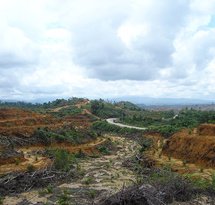
By 2020, the EU wants a larger percentage of fuel used for transportation to consist of renewable sources, such as biofuel. Many European countries have therefore made the blending of biofuels in diesel and gasoline mandatory. A large proportion of this biofuel is now palm oil.